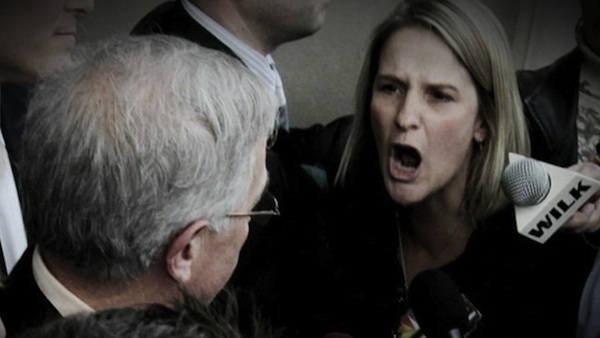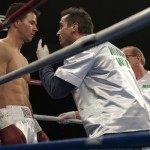Kids for Cash Review
For the uninitiated, the “Kids for Cash” judicial scandal took place over a period of about ten years, from the late 1990s to the late 2000s. In Luzerne County, Pennsylvania (one county over from where this reviewer grew up, incidentally), Judge Mark Ciavarella ruled over the juvenile court system with an iron fist. Those who entered his chambers rarely left with their parents. He prided himself on cleaning up his county’s schools while really teaching the troubled ones a lesson. Once it came into light that he’d made and never disclosed about $2 million in profit from the county’s juvenile detention center, his record, judicial philosophy, and integrity were forever tarnished, along with those of co-conspirator and fellow judge, Michael Conahan.
The scandal’s eponymous documentary is a piece designed to be fair and comprehensive. That director Robert May gives the accused as much a chance to explain himself as he does the victims a chance to tell their stories is admirable. To his credit, Ciavarella is a little convincing (then again, so are most sociopaths). But the film’s real strength is in sharing with us stories of children broken by this man’s corruptness and abuses of power. May doesn’t shy away from the fact that, yes, some of these young men and women belong(ed) in the judicial system, but even in those cases, the lost innocence espoused by the kids and their parents is enough to break your heart.
The film unfolds chronologically, never revealing more than a casual observer might know circa 1999, 2005, or 2010. It opens with a Ciavarella campaign ad in which he brags about his “no tolerance” judicial philosophy. We also see him warning students at local high schools—if you’re sitting across from me in my courtroom, watch out.
It’s many years before any average citizens feel something’s amiss with their judge. Plenty of kids go away. Luzerne has an abnormally high conviction rate, but no one thinks twice, other than the families of these “delinquents”—teenagers who are guilty of “crimes” like fighting at school and creating prank web pages. What begins to turn heads is the startling rate of families who waive their right to counsel—something like 50%. A Philadelphia judicial advocacy group gets involved, and from there, Ciavarella is toast.
The judge helped find the county’s home for juvenile delinquents, and for his work, he received a payment of $2 million, which he split with a fellow judge—Conahan—who helped broker the deal from another end. That money went unreported, which meant an easy fraud conviction for federal prosecutors. But the circumstantial evidence of something much dirtier—”Kids for Cash”—was enough to destroy Ciavarella in the court of public opinion.
This is where the May’s approach pays off. It’s tremendously easy to write this man and his claims off; ruining kids’s lives for profit—it doesn’t get worse than that. And there are more dots to connect in Ciavarella’s story than the one made popular by the news, both local and national. But Ciavarella acted without empathy for years before the detention center was built, and prosecutors never formally pursued the kids-for-cash angle. That said, a judge who acts as dishonestly as Ciavarella did loses all benefit of the doubt. He argues extremely compellingly that his crimes are purely financial, but his testimony—as extensive as it is—is placed late enough in the film that he probably won’t truly convince anyone.
That testimony is preceded mostly by families telling their tragic stories. None is more tragic than that of Sandy Fonzo. Her son, Ed, was arrested for underage drinking and attending a party where drug paraphernalia was found. Though it was his first offense, Ciavarella sentenced him to six months in juvenile detention. After his release, his mother says, he was never the same, and a few years later, following other brushes with the law, he killed himself.
Sandy confronted Ciavarella as he walked out of court following his sentencing (guilty on 12 of 39 charges, he’s in the middle of a 20-year trip to the big house). This confrontation is emotion in its rawest, most painful form. (See it in the lead up to her interview on The Today Show from 2011.) It’s a moment that defines this movie while breaking your heart, and there are more like it.
Kids for Cash isn’t formally interesting, but its profiling real people who find themselves in an extraordinary, high-stakes situation that ends poorly for many, tragically for some. What I’m saying is that it’s inherently cinematic and doesn’t need to break form to pass muster. It succeeds on journalistic merit and thoughtfulness of execution. You can’t ask for much more from a documentary.
















